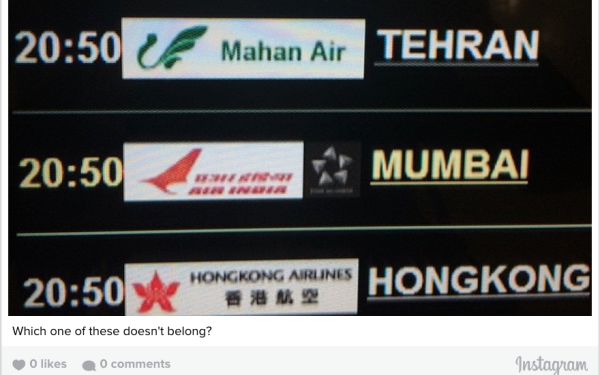The Question of Enforcements of Pre-Implementation Violations
In the wake of the nuclear agreement between the United States, other major world powers, and Iran (also known as the Joint Comprehensive Plan of Action or JCPOA), question has arisen as to the extent to which U.S. sanctions authorities will enforce existing U.S. sanctions laws targeting Iran-related trade dealings. Despite the constant refrain from U.S. administration officials as to their intent to fully enforce surviving U.S. sanctions targeting Iran post-deal, skepticism continues to pervade conversations I have had with a lot of parties interested in the prospect of Iran-related trade, particularly the willingness of U.S. sanctions authorities to continue to enforce U.S. trade sanctions with Iran. Moreover, some have questioned whether U.S. authorities would continue to take enforcement action against U.S. and foreign parties for conduct that took place prior to the lifting of sanctions upon Implementation Day.
Part of this skepticism is due to the perception that the U.S. will be reluctant to take action to enforce surviving U.S. sanctions laws when doing so could risk the broader nuclear agreement. Pursuant to this understanding, Iran will react negatively to any enforcement action taken against U.S. or foreign parties for violations of U.S. sanctions laws, particularly those that will be lifted under the nuclear accord.
Such skepticism merits a closer investigation of the text of the JCPOA, which I believe deals with this matter adequately. For instance, § 30 of the Main Text of the JCPOA states, in part:
Following the lifting of sanctions under this JCPOA as specified in Annex II [of the JCPOA], ongoing investigations on possible infringements of [] sanctions may be reviewed in accordance with applicable national laws.
This means, in sum, that U.S. authorities are permitted to continue to undertake ongoing investigations of U.S. sanctions violations as to sanctions lifted under the nuclear accord and to take enforcement action regarding those sanctions violations, on the condition that such potentially violative conduct took place prior to the lifting of sanctions. In other words, U.S. authorities can continue to investigate and take enforcement action, as necessary, against U.S. or foreign parties that handled transactions for designated Iranian persons and entities, or that engaged in the provision of goods, services, or technology to Iran’s energy sector in ways contrary to the Iran Sanctions Act. Critically, this section of the JCPOA is solely applicable to sanctions that will be lifted under the nuclear accord.
As such, it should not come as a shock if U.S. authorities do take enforcement action against U.S. or foreign parties for past conduct that would no longer be a sanctions violation in the post-implementation phase. While the decision to take such enforcement action will be a function of the predicted response from Iran and the threat such response may pose to the broader nuclear accord, the plain language of the JCPOA permits U.S. authorities to continue to undertake ongoing investigations of U.S. sanctions violations as to sanctions lifted under the nuclear agreement.
More obviously, nothing in the JCPOA prohibits the United States from continuing to enforce surviving U.S. sanctions against Iran, including the U.S.’s comprehensive trade and investment embargo – the Iranian Transactions and Sanctions Regulations (“ITSR”), 31 C.F.R. Part 560. Those who expect U.S. sanctions authorities to take a more relaxed approach to enforcement of U.S. trade sanctions are taking a big gamble – not just with their bank accounts, but with their freedom as well (as ITSR violations invite both civil and criminal penalties). As such, the advice is to consult with legal counsel as to the scope of U.S. sanctions laws both now and in the post-implementation phase and to faithfully observe those laws to ensure full compliance. Absent such an approach, U.S. and foreign parties are opening themselves up to the possibility that U.S. authorities use them as an example of the perilous road ahead for Iran-related trade dealings.



